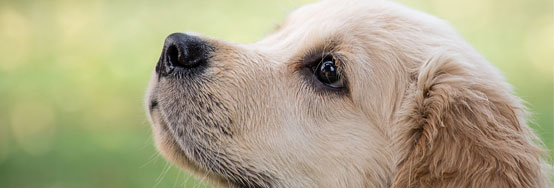Puppy Socialization

How to Properly Socialize your Puppy
When we talk about socializing pets, it means helping them learn to be comfortable within human society – a society that includes many different types of people, environments, and other animals. There is no “cookie cutter” way to socialize your pet. The time it takes will vary depending on its age at adoption, the animal’s breed and temperament, and the type of household and lifestyle it will be joining.
Puppies have a socialization window between 3 and 12 weeks. A kitten’s window is much smaller, ending around 8 weeks. During this “window,” a puppy and kitten are the most receptive to new stimuli without becoming fearful. If possible, you should try exposing them to new experiences during this period. Incomplete or improper socialization during this time can increase the risk of behavioral problems later in life including fear, avoidance, and/or aggression.
When socializing your puppy or kitten, make sure the situation is not overwhelming. If your pet becomes uncomfortable or frightened, remove your pet from the location. Do not inadvertently reinforce or reward its fear by comforting your pet. Instead, start with a less overwhelming situation and when your pet is acting calm, then reward it with lots of positive reinforcement (praise, toys, or treats).
Socialization should include regular handling of your pet’s body including their face, feet, and body. Expose your puppy or kitten to a variety of people with different body types, genders, and ages. Environmental stimuli should be varied and examples include cars, bicycles, stairs, noises, and other animals.
When socializing your puppy or kitten, you should make sure the interactions are made as safe as possible. Other animals should be vaccinated, intestinal parasite free, and/or feline leukemia and FIV negative. The environments should be clean of feces and urine. Dog parks and common areas of grass can harbor viruses and intestinal parasites that your young pet can be more susceptible to contracting. Puppy and obedience classes are excellent opportunities for socialization.
Make sure to have time for your pet to play alone. Keep a room puppy- or kitten-proofed to provide a safe environment. Provide lots of their favorite toys, but make sure the toys will not be destroyed or swallowed. Alone time helps your pet learn to amuse itself and try to prevent over attachment to the owners.
Early and adequate socialization can help prevent behavior problems and improve the human-animal bond. While the initial socialization window is important, make sure to continue exposing your pet to a variety of stimuli throughout its life.

Contact Us

